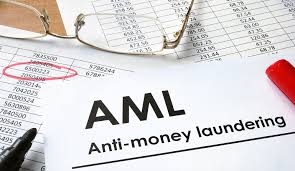Cyber security is one of the factors of concern in today’s digital age. An enterprise that does not follow regulatory compliance laws faces huge financial losses and a damaging brand image. Considering that it is difficult to keep a track record of risk factors while dealing with everything on a digital platform, businesses have developed digital verification to ensure security measures and proper compliance with AML rules and regulations.
The article briefly explains what AML solutions are and why enforcing them in the structures is necessary. Also, explore how AML compliance encounters money laundering cases.
Understand the Concept of AML Solution
AML solutions refer to strategies for dealing with imposters and fraudsters involved in black money transactions and laundering money, as well as combating financial crimes. The prevention strategies may vary from state to state. Banking and other financial sectors must comply with AML solutions to ensure security within financial services. Drug trafficking and tax evasion are two factors of money laundering that a sector needs to be aware of.
Violating AML security measures can seriously damage businesses’ financial stability and reliability. It can cost them non-compliance fines and penalties; however, the risk of fraudulent transactions is high in all industries, including the crypto, banking sector, healthcare, insurance, and e-commerce market, where everything is handled virtually. AML compliance ensures credibility and successful business collaborations while safeguarding enterprises from financial misconduct.
Another important factor to consider is compliance with regulatory bodies. The governing bodies include the Financial Action Task Force(FATF) and Financial Crimes Enforcement Network(FinCEN), which work to tackle money laundering and other terrorist financing in the AML system.
How AML Compliance Combat Money Laundering
Preventing risk factors regarding money laundering cases becomes a top priority for the financial and banking sector. The companies should be following the listed below action to make sure they are enforcing the AML monitoring system:
Evaluate Risk with AML Security Measures
AML security measures work by establishing policies that trap imposters associated with illegal money transactions or try to cover up black money dealings. Enterprises implement risk-evaluating strategies to identify the most crucial threats and calculate the risk scores associated with them before they move toward solutions.
Accepting Charge of Compliance
AML Compliance Officers play a vital role in managing the AML monitoring program. Digital onboarding is basically the process of recruiting the entity while conducting a proper background check. Compliance officers must stay updated with the latest AML regulations to ensure that every company and business complies with them. They should also conduct specific adaptations and train the workers accordingly.
Establishing Anti-Money Laundering Policies
Establishing AML solutions ensures that AML standards are complied with in the company and that no suspicious activity is carried out. If the employees suspect any operation, such as an illegal transaction or money laundering, they should know what measures are required to combat these frauds. Moreover, it is crucial to direct working individuals to use advanced technologies to detect illicit activity offenses.
Seamless Experience with AML Screening
AML screening plays a crucial role in digital onboarding. It involves not just conducting an identification method but also ensuring that the verification measures are implemented in compliance with AML regulations. It also involves amendments to make adjustments every year. Sectors like banks and financial institutions also require a third party to inspect how well operations are conducted. It also ensures that the enterprise protects its business from money theft while maintaining a seamless consumer experience.
Final Verdict
Observing all the concerns and benefits of AML compliance, it is concluded that implementing AML solutions is essential for the onboarding and ongoing monitoring to encounter risk threats. Combating money laundering and financial terrorist funding has become smooth with AML screening. However, digital verification and in-depth AML security have become a requirement. The enforcement of the Anti-Money Laundering solutions improves the stakeholders’ trust and reliance. It provides enterprises an opportunity to grow while successfully preventing financial crimes. Therefore, the global economy will become more secure with the ongoing obligation to the AML measures.














